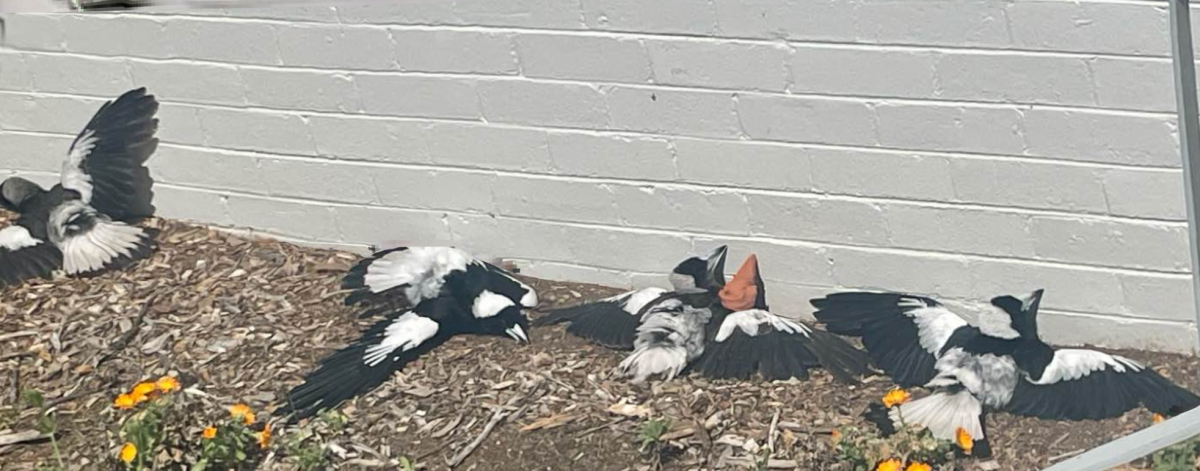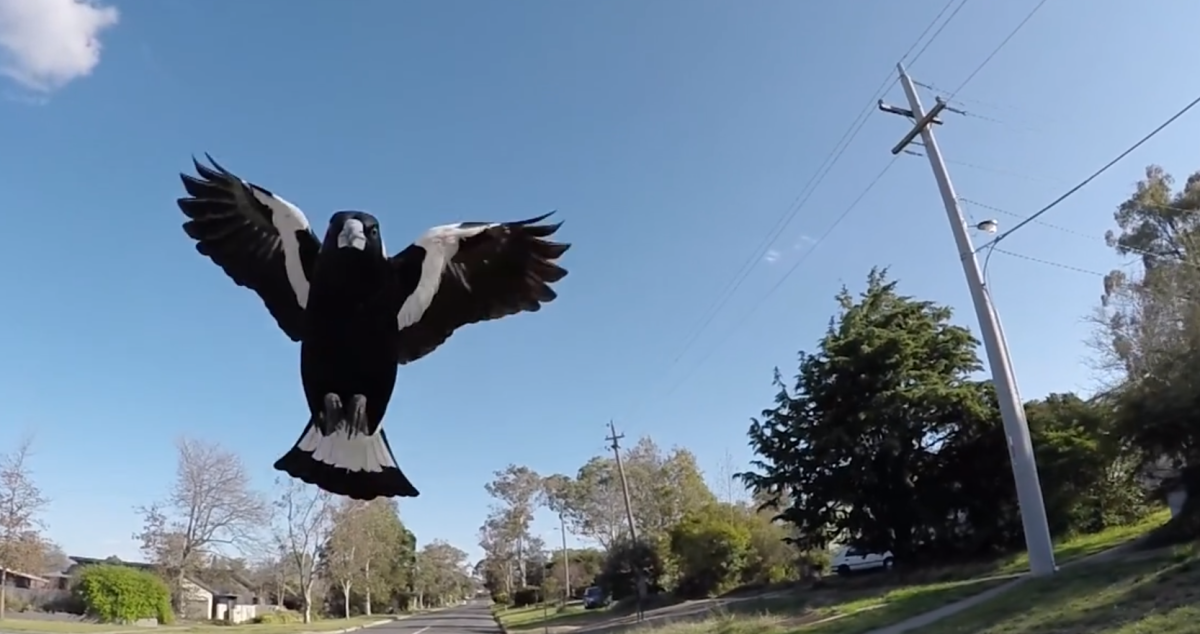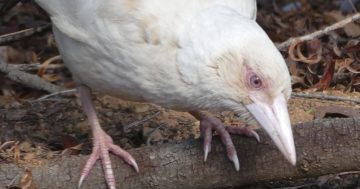
Magpies sunbathing? Yes, it’s a thing, for an important reason too. Photo: Emily Ruth, Canberra Notice Board Group, Facebook.
“Can someone please tell me why these magpies that live in the trees at my house are so weird?”
Emily Ruth came across four magpies that appeared to have crash-landed into her garden last week and posted the photo to the Canberra Notice Board Group on Facebook for advice.
Comments ranged from “they’re washing their feathers in sand” and “it kills the parasites under their wings” to “they … pretend to play dead, the ants come and then the magpies eat the ants”. Others said they’re “probably drunk” from Collingwood’s grand final win.
But what’s really going on when magpies randomly play dead?
The behaviour has been noted by bird scientists (ornithologists) since at least 1831, when the French-American John James Audubon described a Great White Heron that “will sometimes drop its wings several inches as if they were dislocated”.
More than 50 bird families worldwide have been found to do the same, spanning birds of prey, rails, doves, larks, swallows, thrushes, finches, buntings and others.
Initially, it was thought to be simple sunbathing for warmth, but there’s another more important reason.
Dr Robert Magrath is an emeritus professor of behavioural ecology at the Australian National University (ANU). He’s often seen Canberra’s magpies lying around in a trance-like state before, but never in such a large group as what Emily’s photo shows.
“Sunning is relatively common in birds,” he says.

Most of us know the fear of hearing a magpie swoop. Photo: ACT Parks and Conservation Service.
As part of his research into how birds communicate, Dr Magrath has spent a lot of time studying the Australian White-browned Scrubwren, a small bird (11 to 14 cm tall) common to Sydney.
“They also sun themselves. I haven’t seen them doing it in winter, but they do it in late spring/early summer when things are warming up and they are finished breeding,” he says.
“Perhaps it’s getting hot enough to be effective against parasites, or for some reason, parasites become worse then.”
The sun’s harsh UV rays might burn your skin and fade your car’s paint, but a little is lethal if you’re a microscopic lice or parasite. Opening up their feathers and lying in the sun is another way birds like the scrubwren and magpie preen themselves.
“As far as I understand, feather mites just affect the feathers, but they may dull colours or perhaps affect performance in flight or reduce insulation,” Dr Magrath says.
“Perhaps there are other parasites that are important too.”
In a US study from 1995, a pair of scientists tested this theory by building a pair of model bird wings, complete with feathers, and infesting them with a single louse. After only 10 minutes in direct sunlight, the feathers had reached temperatures between 60 and 70 degrees Celsius. The louse died in six of the 12 trials.
Magpies are famously clever birds, so the idea they might also play dead to attract ants deserves more research, Dr Magrath says.
“The playing-dead idea is interesting. I believe birds can also ‘ant’ and ‘sun’, and I have read theories that ants might also help get rid of parasites, perhaps because the ants eat them or because their formic acid kills or repels them. But I haven’t heard about birds attracting and then eating the ants. I’m sceptical, but birds can do cool things, so who knows!”
So Emily’s magpies are no weirder than others. Nor was the birdbath spiked.
Original Article published by James Coleman on Riotact.








